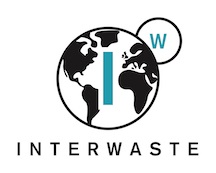-
Courses

Courses
Choosing a course is one of the most important decisions you'll ever make! View our courses and see what our students and lecturers have to say about the courses you are interested in at the links below.
-
University Life

University Life
Each year more than 4,000 choose University of Galway as their University of choice. Find out what life at University of Galway is all about here.
-
About University of Galway

About University of Galway
Since 1845, University of Galway has been sharing the highest quality teaching and research with Ireland and the world. Find out what makes our University so special – from our distinguished history to the latest news and campus developments.
-
Colleges & Schools

Colleges & Schools
University of Galway has earned international recognition as a research-led university with a commitment to top quality teaching across a range of key areas of expertise.
-
Research & Innovation

Research & Innovation
University of Galway’s vibrant research community take on some of the most pressing challenges of our times.
-
Business & Industry

Guiding Breakthrough Research at University of Galway
We explore and facilitate commercial opportunities for the research community at University of Galway, as well as facilitating industry partnership.
-
Alumni & Friends

Alumni & Friends
There are 128,000 University of Galway alumni worldwide. Stay connected to your alumni community! Join our social networks and update your details online.
-
Community Engagement

Community Engagement
At University of Galway, we believe that the best learning takes place when you apply what you learn in a real world context. That's why many of our courses include work placements or community projects.
Further Information
Information Sources
 Where this project focuses on the emissions of POPs from landfills, the related “WAFER” project (Identification and Treatment options for Waste Streams of Certain Bromine Containing Flame Retardants) focused on determining the concentrations of BFRs entering the recycling stream through flame retarded-products and also developing a method of screening contaminated goods for POP-BFRs. You can read about this project and some of its findings though the project’s website (wafer-research).
Where this project focuses on the emissions of POPs from landfills, the related “WAFER” project (Identification and Treatment options for Waste Streams of Certain Bromine Containing Flame Retardants) focused on determining the concentrations of BFRs entering the recycling stream through flame retarded-products and also developing a method of screening contaminated goods for POP-BFRs. You can read about this project and some of its findings though the project’s website (wafer-research).
 Another collaborative research project between NUI Galway and the University of Birmingham has also recently commenced. The “ELEVATE” project (Elucidating Levels and Pathways of Human Exposure in Ireland to POP-BFRs and PFOS) evaluates human exposure to POP-BFRs and PFOS through inhalation of air, ingestion of and dermal contact with household dust, as well as ingestion of water. Further details of this study can be found on the project website (www.nuigalway.ie/elevate/).
Another collaborative research project between NUI Galway and the University of Birmingham has also recently commenced. The “ELEVATE” project (Elucidating Levels and Pathways of Human Exposure in Ireland to POP-BFRs and PFOS) evaluates human exposure to POP-BFRs and PFOS through inhalation of air, ingestion of and dermal contact with household dust, as well as ingestion of water. Further details of this study can be found on the project website (www.nuigalway.ie/elevate/).
The legislation governing the use and treatment of these chemicals stem from the UNEP Stockholm Convention on Persistent Organic Pollutants (http://chm.pops.int/TheConvention/Overview/tabid/3351/) and, in Ireland, is governed by various European Commission regulations including the “POPs Directive” (http://ec.europa.eu/environment/chemicals/international_conventions/index_en.htm), the “WEEE Directive” (http://ec.europa.eu/environment/waste/weee/index_en.htm) and REACH (https://echa.europa.eu/regulations/reach).
References
National University of Ireland Galway: http://www.nuigalway.ie/
University of Birmingham: http://www.birmingham.ac.uk/
EPA: http://www.epa.ie
ELEVATE Project: http://www.nuigalway.ie/elevate/
FUEL Project: http://www.nuigalway.ie/fuel/
WAFER Project: wafer-research
UNEP Stockholm Convention on Persistent Organic Pollutants: http://chm.pops.int/
http://eur-lex.europa.eu/browse/summaries.html
http://www.epa.ie/pubs/reports/enforcement/epalicensedsitesreportonwasteenforcement2014.html
















